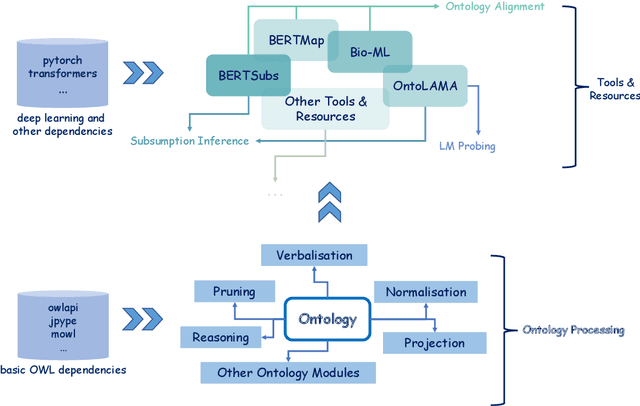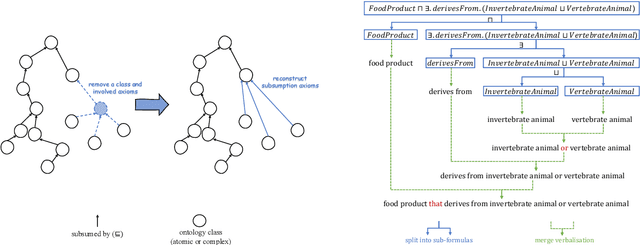Carlo Allocca
DeepOnto: A Python Package for Ontology Engineering with Deep Learning
Jul 06, 2023



Abstract:Applying deep learning techniques, particularly language models (LMs), in ontology engineering has raised widespread attention. However, deep learning frameworks like PyTorch and Tensorflow are predominantly developed for Python programming, while widely-used ontology APIs, such as the OWL API and Jena, are primarily Java-based. To facilitate seamless integration of these frameworks and APIs, we present Deeponto, a Python package designed for ontology engineering. The package encompasses a core ontology processing module founded on the widely-recognised and reliable OWL API, encapsulating its fundamental features in a more "Pythonic" manner and extending its capabilities to include other essential components including reasoning, verbalisation, normalisation, projection, and more. Building on this module, Deeponto offers a suite of tools, resources, and algorithms that support various ontology engineering tasks, such as ontology alignment and completion, by harnessing deep learning methodologies, primarily pre-trained LMs. In this paper, we also demonstrate the practical utility of Deeponto through two use-cases: the Digital Health Coaching in Samsung Research UK and the Bio-ML track of the Ontology Alignment Evaluation Initiative (OAEI).
 Add to Chrome
Add to Chrome Add to Firefox
Add to Firefox Add to Edge
Add to Edge